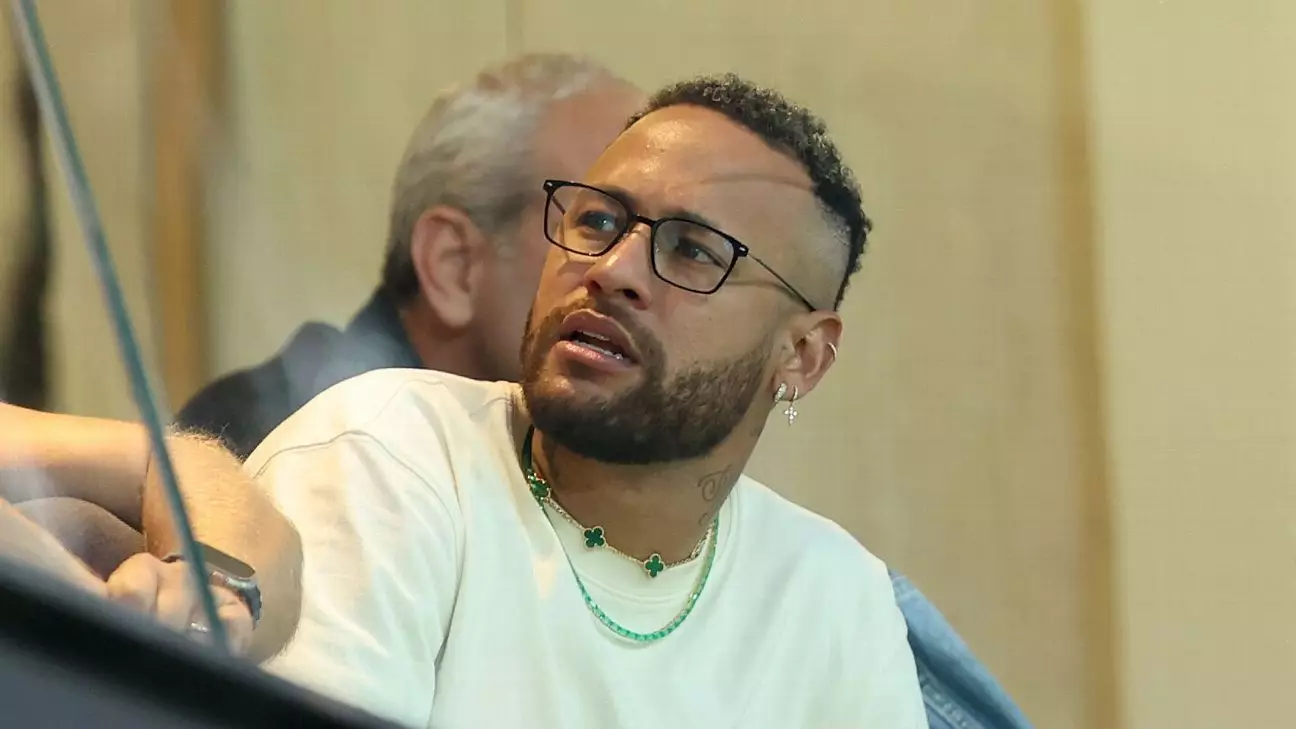In recent weeks, rumors have swirled around the possibility of Brazilian superstar Neymar making a move to Inter Miami, especially following the club’s high-profile signings of his former Barcelona colleagues, including Lionel Messi. Expectations ran high after reports of Neymar purchasing property in Miami added fuel to the fire. However, Inter Miami’s head coach, Gerardo Martino, spoke out against these rumors, emphasizing that such a transfer is currently not feasible due to the constraints of Major League Soccer (MLS) rules regarding salaries and roster management.
Martino elaborated on the strict financial regulations imposed by MLS, which make it challenging for teams to acquire high-profile players like Neymar, who is contracted with Saudi Pro League club Al Hilal until 2025. “What I can’t imagine is if the league doesn’t make the salary issue more flexible, how it would be carried out,” he stated. This perspective highlights a crucial aspect of the league’s operational model designed to maintain competitive balance among franchises. It is a reality that while acquisitions can be dreamt of, they must fit within a meticulous framework set by the league.
The issue of salary cap flexibility in MLS surfaces regularly in discussions surrounding player transfers. Clubs are hampered by strict rules that limit their spending unless they receive special dispensations from the league, fueling frustrations among management and fans alike. Martino’s insistence on the impracticality of Neymar’s transfer establishes a robust understanding that high-profile signings cannot merely be conjured out of wishful thinking.
Following reports of Neymar’s potential relocation to Miami due to real estate investments, Martino dismissed such associations, stating that the act of purchasing a house does not directly correlate with an athlete’s decision to join a particular club. “Everyone that buys a home here is going to come to play? Ha!” he quipped, reflecting on how this narrative seems overly simplistic and misleading.
This assertion also reinforces the importance of not conflating personal choices with professional commitments. The allure of living in a vibrant city like Miami can exist independently of a player’s career decisions, yet this nuance is often disregarded by the public and media alike, leading to speculative narratives that gain traction without substantial evidence.
In directing attention away from the Neymar speculation, Martino quickly turned the conversation towards the pressing matters of the upcoming playoff match against Atlanta United. Inter Miami faces a critical moment, as they seek to advance to the conference semifinals—an immediate objective that demands the players’ full attention. Martino pointed out the necessity of focusing on the task at hand, shifting the narrative from outside distractions to the team’s on-field performance.
The weight of this playoff matchup also magnifies the challenges faced by the team, especially concerning player availability. With Sergio Busquets potentially sidelined due to illness, the pressure on the remaining squad intensifies. Martino’s comments about Busquets highlight the strategic adjustments that may be necessary in the absence of key players, emphasizing how vital each member’s fitness is during crucial matches.
The rumored link between Neymar’s real estate acquisition and a potential signing with Inter Miami illustrates a broader issue within the world of sports—a persistent narrative that often conflates personal choices and professional decisions. While the intersections of lifestyle and career choices remain intriguing, the reality of sports negotiations is far more complex, governed by rules, contracts, and organizational strategies.
As the world of football continues to evolve, one must recognize that headlines born from speculation can often overshadow the real-life dynamics at play. The media-driven vortex surrounding player transfers can mislead fans and create unrealistic expectations. Brazilian footballer Neymar is a remarkable talent whose impact on the game is undeniable, but as Martino adeptly points out, the structural constraints of MLS make any talk of his potential move mere conjecture rather than actionable planning.
Ultimately, Gerardo Martino’s carefully chosen words regarding the Neymar saga serve as a crucial reminder of the importance of grounding speculation in the realities of sports management. The coaching staff’s attention must remain on current challenges, such as the imminent playoff confrontations, rather than on unwarranted distractions. As the narrative continues to unfold in MLS and beyond, fans must stay grounded in the understanding that player movements are dictated by a complex interplay of factors that go far beyond mere rumors of real estate or friendships.

